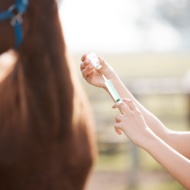Naturewatch wins award for wildlife crime work
The charity's wildlife crime training package has been provided to over 5,500 police staff.
Naturewatch Foundation has received a Charity Awards prize for its work supporting the police in tackling wildlife crime.
The animal welfare charity is recognised for its ‘Police control room wildlife crime training package’, which advises police staff how to handle calls regarding wildlife crimes. This includes offences such as badger baiting and hare coursing.
Since its introduction, the training package has been provided to over 5,500 police staff in less than 12 months.
The training package was created by Naturewatch Foundation in partnership with the National Wildlife Crime Unit and RSPCA. Advice was supported with the expertise of Thames Valley Police.
Using animations, the package aims to give the learner a better understanding of what a caller or witness may be experiencing with wildlife crime. This includes visualisations of the stages of a wildlife crime, such as the ‘dig’ in a case of badger baiting.
The course means that police control room operators, who are responsible for logging calls and dispatching the right officer, know which resources may be needed to enact an effective police response.
The charity was recognised with the Charity Awards prize in the ‘Animals and Environment’ category as part of a ceremony on Tuesday, 9 July.
Kate Salmon, campaign manager and project lead, said: “We are overwhelmed by this award and I commend the dedicated police officers up and down the country, whose teams are usually under-resourced, that continue to fight week on week to stop British wildlife being brutally persecuted.
“Our work to support them continues and it’s a real delight to be recognised for what we do for animal welfare.”
She added: “Wildlife crime has such dire consequences for our rural communities, as well as causing suffering to the animals involved, including the dogs used so disgustingly by the people who are meant to protect them. It must end.”
Image © Shutterstock



 Zoetis UK has apologised for a supply shortage of Equip Artervac, caused by a manufacturing issue.
Zoetis UK has apologised for a supply shortage of Equip Artervac, caused by a manufacturing issue.